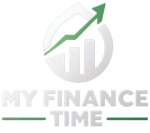Mortgage refinancing in Canada remains one of the most strategic financial tools available to homeowners. With changing interest rates, economic fluctuations, and evolving family needs, understanding when and how to refinance can translate into substantial financial benefits. In this comprehensive guide, we explore the mechanics, advantages, and strategic considerations of mortgage refinancing tailored to Canadian homeowners.

Content
What Is Mortgage Refinancing?
Mortgage refinancing involves replacing your existing mortgage with a new one—either from your current lender or a new one. The goal is to secure better loan terms, access home equity, consolidate debt, or adapt to life changes such as divorce, job relocation, or retirement.
Lower Your Monthly Mortgage Payments
One of the primary motivations for refinancing is to reduce monthly obligations. If interest rates have dropped since your initial mortgage, refinancing can significantly reduce your monthly payment and total interest paid over the life of the loan.
Example:
- Original mortgage: $400,000 at 5.0% over 25 years = ~$2,326/month
- Refinanced mortgage: $400,000 at 3.9% over 25 years = ~$2,083/month
- Monthly savings: $243
- Annual savings: $2,916
- Lifetime savings: $72,900+
These savings can be redirected toward retirement, education, or emergency funds.
Access Equity Through a Cash-Out Refinance
A cash-out refinance allows homeowners to borrow against their home’s built-up equity and receive the difference in cash. This can fund major expenses such as home renovations, business investments, or debt consolidation.
Qualification Snapshot:
- At least 20% equity in your home
- Proof of income and creditworthiness
- Updated appraisal required
Pro Tip: Reinvesting in home upgrades can further increase property value, compounding the financial benefit.
Refinance to a Fixed Rate for Predictability
If your original mortgage was a variable rate or adjustable-rate mortgage (ARM), refinancing to a fixed-rate mortgage can protect you from rising interest rates. With the Bank of Canada adjusting its policy rate in response to inflation, locking in a fixed rate offers financial stability over the long term.
Consolidate High-Interest Debt into Your Mortgage
Credit card debt and unsecured loans in Canada often carry interest rates upward of 19%. Refinancing your mortgage to consolidate this debt into a lower-interest home loan can drastically reduce your monthly obligations and help regain control over your finances.
Example:
| Debt Type | Balance | Interest Rate | Monthly Payment |
| Credit Card | $20,000 | 19.99% | $600+ |
| Personal Loan | $15,000 | 11.5% | $400+ |
| Mortgage (new) | +$35,000 | 4.0% | $184 |
By consolidating into the mortgage, homeowners could cut their monthly payments by more than half.
Shorten Your Amortization Period and Build Equity Faster
Some homeowners choose to refinance into a shorter amortization term (e.g., 15 or 20 years instead of 25). While this increases monthly payments slightly, it reduces overall interest paid and builds equity faster, accelerating mortgage freedom.
When Should You Refinance in 2025?
- Interest rates have dropped by 0.75% or more
- You’re 5+ years into your mortgage term
- Your credit score has improved
- Your home’s value has increased significantly
- You plan to stay in the home for 3+ more years
Understanding the Costs of Refinancing
While the benefits are substantial, refinancing comes with costs that must be factored in:
| Fee Type | Estimated Range |
| Legal/Notary Fees | $700 – $2,000 |
| Appraisal Fee | $300 – $500 |
| Title Search & Registration | $200 – $400 |
| Discharge/Prepayment Penalty | 3 months’ interest or IRD |
Some lenders offer no-fee refinancing, but this often comes with a slightly higher interest rate.
Strategic Tips Before You Refinance
- Check your credit score and clear up any inaccuracies.
- Shop around—use mortgage brokers to access multiple lenders.
- Avoid resetting the clock unless it makes financial sense.
- Calculate total interest, not just monthly payments.
- Consider your long-term plans (moving, downsizing, etc.).
Best Use Cases for Refinancing in Canada
| Scenario | Refinancing Benefit |
| Rising interest rates | Lock in a fixed rate |
| Home renovations planned | Cash-out refinance |
| Multiple high-interest debts | Debt consolidation |
| Improved credit score | Lower rate qualification |
| Divorce/separation | Remove one party from mortgage |
Provincial Considerations
Each province has varying regulations on refinancing. For instance:
- Ontario & B.C. have higher average home values, offering more refinance potential.
- Alberta & Saskatchewan often experience higher prepayment penalties due to fixed-rate contracts.
- Quebec has unique notarial laws and additional lender restrictions.
Final Thoughts
Refinancing a mortgage in Canada isn’t just about chasing lower rates—it’s about realigning your financial goals with smarter, more effective tools. In 2025, the landscape continues to reward informed, strategic homeowners who are proactive about leveraging equity, protecting against interest rate hikes, and securing long-term savings.
If you’re considering refinancing, speak with a licensed mortgage broker or financial advisor to run a tailored analysis.

Johnny is a finance blogger who has been blogging for years. He’s familiar with everything that goes into it, and loves to share his knowledge with others.



